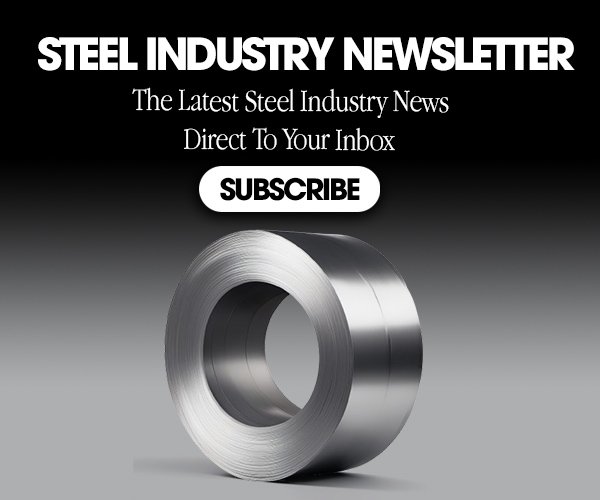The American steel industry is witnessing a shift in pricing strategy, with two industry giants, Nucor and Cleveland-Cliffs, recently announcing price adjustments for hot-rolled coil (HRC), a fundamental steel product used extensively across various manufacturing sectors. This article dives into the details of recent price changes, explores the underlying reasons, and analyzes the potential consequences for various stakeholders within the steel industry and beyond.
A Tale of Two Announcements: Nucor Doubles Down on Increases
Nucor, has been making headlines with its recent pricing maneuvers. On May 20th, 2024, they initiated a $10/ton increase for HRC, bringing the base price to $770/ton. Just a week later, on May 27th, Nucor announced a further price adjustment, this time implementing a tiered pricing structure for its CSP HRC (Consumer Spot Price). The new base price for CSP HRC stands at $780/ton for all producing mills except CSI, where the price remains slightly higher at $840/ton.
Cleveland-Cliffs: A Strategic Price Adjustment
Cleveland-Cliffs, another major player in the US steel market, followed a different approach. On April 26th, they announced a spot price of $850/ton for HR coil. However, on May 23rd, Cleveland-Cliffs opened their July HRC order book with a new base price of $800/ton for spot HR, effective immediately. This move represents a $50/ton decrease compared to their previously announced spot price.
Decoding the Price Moves: A Multifaceted Landscape
Understanding the rationale behind these seemingly divergent pricing strategies by Nucor and Cleveland-Cliffs necessitates examining the complex dynamics at play in the steel industry:
- Pricing Mechanisms: Nucor announces its HRC prices on its index weekly. Cleveland-Cliffs announces its HRC pricing monthly. Both producers do not spell out the algorithms used to develop their pricing. Lastly, each mill reserves the right to adjust their pricing based on quantitative and qualitative data.
- Rising Input Costs: The cost of raw materials used in steel production, such as iron ore, has been steadily increasing in recent months due to various global factors. This puts pressure on steel producers to raise their prices to maintain profitability.
- Supply Chain Disruptions: The ongoing geopolitical tensions continue to disrupt global supply chains. Tariffs can limit the availability of raw materials and finished steel products, potentially leading to price increases.
- Consolidation in the Steel Industry: The US steel industry has witnessed consolidation in recent years, with mergers and acquisitions reducing the number of major producers. This consolidation can lead to less competition and potentially higher prices for consumers.
- Demand Considerations: Potential changes in interest rates anticipated later this year could stimulate construction, housing and automotive markets.
It’s important to note that these are just some of the potential reasons behind the price changes. The specific factors influencing Nucor and Cleveland-Cliffs’ decisions might not be publicly disclosed. However, by analyzing these various aspects, we can gain a better understanding of the current market climate.
A Domino Effect: The Ripple Through the Industry
The recent price hikes and adjustments by Nucor and Cleveland-Cliffs will have a cascading effect throughout the steel industry:
- Steel Service Centers: These businesses act as intermediaries, purchasing steel in bulk from producers and then processing and distributing it to end-users. They will likely experience higher input costs due to the price increase, which they may pass on to their customers in the form of higher prices for processed steel products.
- Manufacturing Sectors: Steel is a critical material for various manufacturing sectors like construction, automotive, and appliances. Higher steel prices can lead to increased production costs for these industries. Manufacturers may choose to absorb these costs, potentially impacting their profit margins, or pass them on to consumers through higher prices for finished goods.
- Consumers: Ultimately, the price hike can lead to higher costs for consumers of steel products, impacting everything from construction projects and appliances to automobiles and infrastructure development.
Looking Forward: Navigating an Uncertain Future
- Global Economic Conditions: Conversely, an economic slowdown could dampen demand and potentially lead to price corrections.
- Geopolitical Tensions: Ongoing geopolitical tensions, particularly those impacting steel-producing regions, can disrupt supply chains and lead to price volatility.
- Technological Advancements: Technological advancements in steel production could lead to increased efficiency and potentially lower costs in the long run. However, the pace of adoption and the impact on overall production costs remain uncertain.
Conclusion: A Collaborative Approach for a Sustainable Future
The recent price adjustments by Nucor and Cleveland-Cliffs underscore the dynamic nature of the steel market. While these price changes present challenges for various stakeholders, they also offer an opportunity for collaboration and innovation. Here are some key takeaways:
- Transparency and Communication: Open communication between steel producers, service centers, manufacturers, and consumers is crucial to navigate price fluctuations and ensure a stable supply chain.
- Focus on Efficiency: Continuous improvement in steel production processes and exploring alternative materials where feasible can help mitigate the impact of rising input costs.
- Investment in Innovation: Continued investment in research and development of new steel production technologies and exploration of sustainable practices can lead to long-term cost reductions and environmental benefits.
Staying Informed:
For the latest steel news updates on Steel Pricing and other steel trends, be sure to follow Steel Industry News
Check out some of our other articles on Steel Pricing:
U.S. Steel Market: Nucor Weekly CSP Shakes Up Hot Roll Coil Pricing
Nucor Announces Price Decrease of $65/ton
Nucor Price Change: A Decrease In Price
Nucor Posts First Consumer Spot Price for Hot-Rolled Coil
Nucor Announces Consumer Spot Price (CSP) for Hot Roll
Cleveland-Cliffs: Announces Second Price Increase
ArcelorMittal, Nucor, and Cleveland-Cliffs Announce Price Increases
Be sure to subscribe to the Free Steel Industry Newsletter for the latest steel related news direct to your inbox!
By subscribing you agree to our Terms of Use, our Privacy Policy and our Information collection notice









